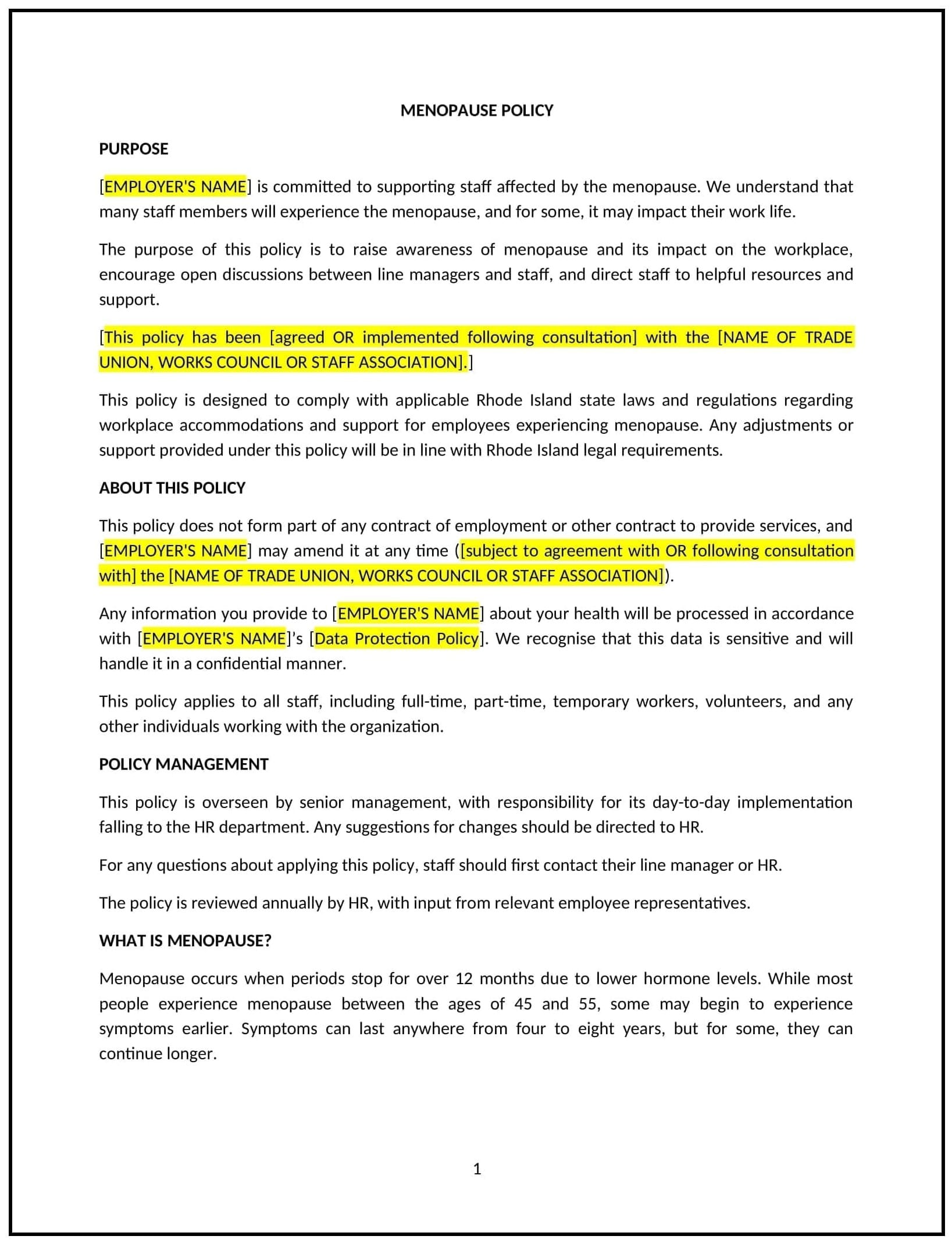Got contracts to review? While you're here for policies, let Cobrief make contract review effortless—start your free review now.

Customize this template for free
Menopause policy (Rhode Island)
This menopause policy is designed to help Rhode Island businesses support employees experiencing menopause. It outlines accommodations, resources, and procedures for addressing menopause-related challenges in the workplace.
By adopting this policy, businesses can promote inclusivity, enhance employee well-being, and maintain productivity.
How to use this menopause policy (Rhode Island)
- Define scope: Clarify the purpose of the policy and the types of accommodations available.
- Establish accommodations: Outline options such as flexible work hours, temperature control, or access to quiet spaces.
- Provide resources: Share information about menopause, including educational materials and support programs.
- Address confidentiality: Ensure employees feel comfortable discussing menopause-related needs without fear of stigma.
- Train managers: Educate supervisors on recognizing and addressing menopause-related challenges.
- Monitor compliance: Regularly review accommodations to ensure they meet employee needs.
- Review and update: Assess the policy annually to ensure it aligns with evolving workplace needs and best practices.
Benefits of using this menopause policy (Rhode Island)
This policy offers several advantages for Rhode Island businesses:
- Promotes inclusivity: Demonstrates a commitment to supporting employees through all life stages.
- Enhances well-being: Provides accommodations that help employees manage menopause symptoms effectively.
- Maintains productivity: Reduces absenteeism and presenteeism by addressing menopause-related challenges.
- Builds trust: Shows employees that their health and well-being are valued, improving morale and loyalty.
- Aligns with best practices: Supports a positive workplace culture by addressing an often-overlooked issue.
Tips for using this menopause policy (Rhode Island)
- Communicate the policy: Share the policy with employees and include it in the employee handbook.
- Provide training: Educate managers on recognizing and addressing menopause-related challenges.
- Monitor compliance: Regularly review accommodations to ensure they meet employee needs.
- Address issues promptly: Take corrective action if accommodations are not provided or stigma arises.
- Update regularly: Assess the policy annually to ensure it aligns with evolving workplace needs and best practices.